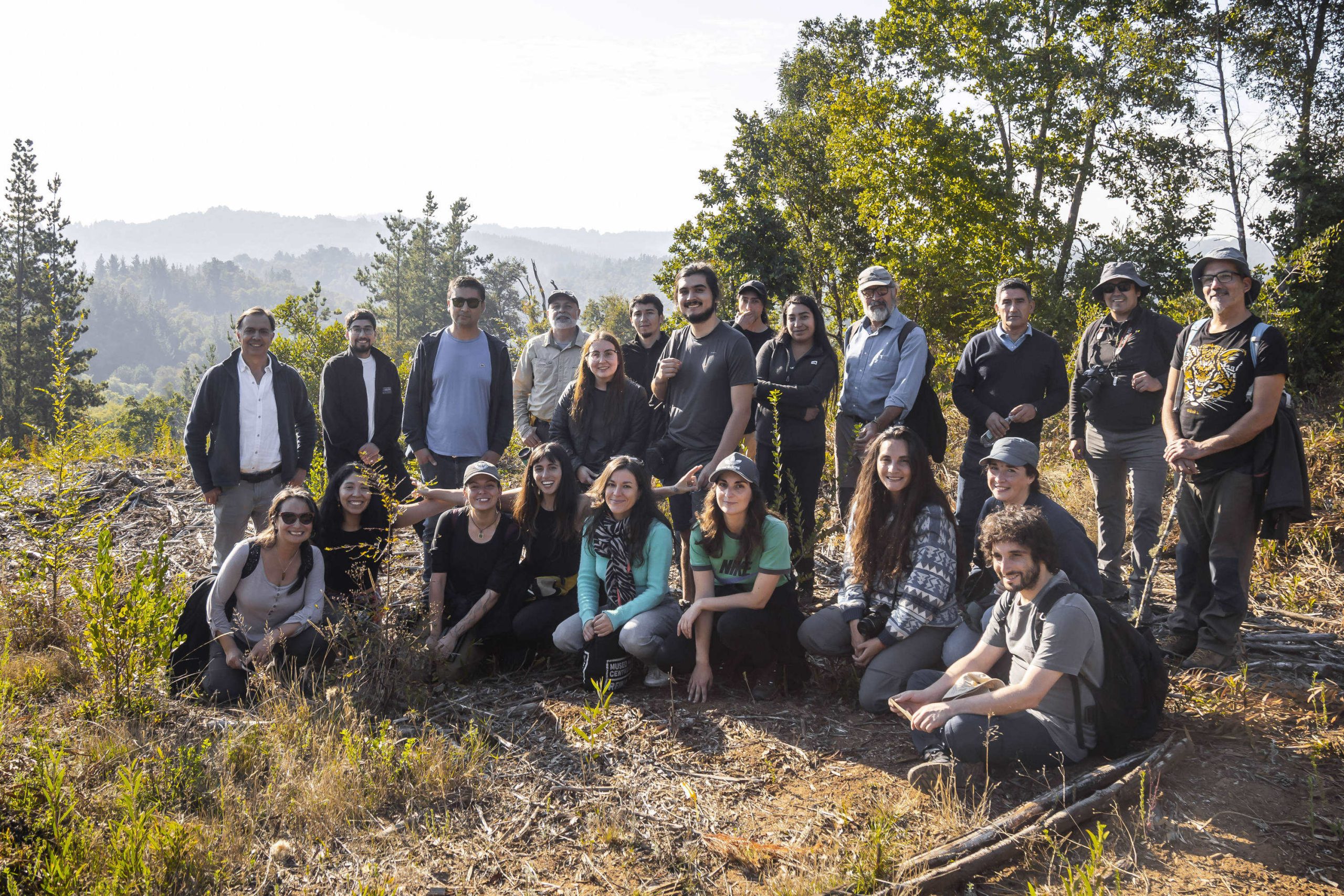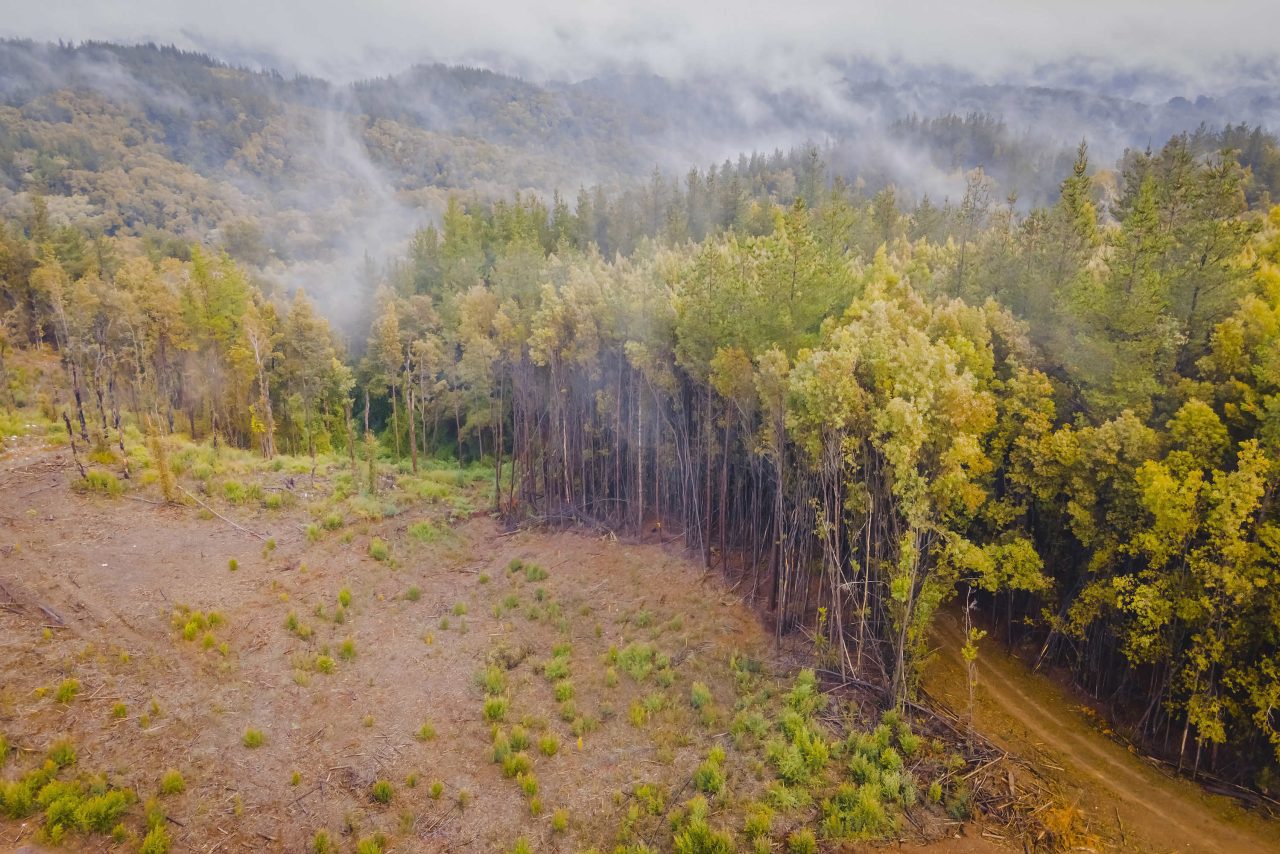Campus Naturaleza Mixed Advisory Council Visits Ecological Restoration Experience in Nonguén National Park

Thirteen years ago, this sector located in the south of what is now the Nonguén National Park looked very different. A forest fire in 1999 split an important fragment of native forest in two, causing significant harm to both biodiversity and humans. Radiata pine (Pinus radiata) and Australian wattle (Acacia melanoxylon) then invaded the area. In 2011 the Landscape Ecology Laboratory at the University of Concepción started a project to restore these degraded areas, replacing invasive exotic species with native species and assisting nature in its recovery process.
Pinus radiata and Acacia melanoxylon invaded the area. That changed in 2011 when the Landscape Ecology Laboratory at the University of Concepción started a project to restore these degraded areas, replacing invasive exotic species with native species from the region and assisting nature in its recovery process.
The Mixed Advisory Council of Campus Naturaleza UdeC includes members of the university community, related institutions, and civil society representatives who will inform about the different line actions of the project and, at the same time, gather suggestions and concerns from their respective sectors.
Nonguén and the hills adjacent to the university share a common history. Therefore, the experience of the Experimental Unit of Ecological Restoration in this area managed by CONAF is very valuable, as it provides background for future implementation of ecological restoration and ex situ conservation actions for biodiversity within the university's initiative.

Dr. Cristian Echeverría Leal, director of the Campus Naturaleza project, explains that “the Mixed Advisory Council was invited to learn about one of the first ecological restoration experiences of the deciduous forests of Concepción, in the Nonguén National Park, which began in 2011 thanks to a public-private partnership. During the visit, the different members of the Advisory Council, from their various sectors, could clearly understand the efforts required to reverse the degradation of native forests in the area, which involves multisectoral and interdisciplinary work, from understanding forestry operations and removing invasive species to plant propagation techniques, involving the local community, and the importance of science to ensure that ecological attributes and promote the ecosystem recovering toward the desired trajectory.”
“One of the action lines of Campus Naturaleza is the ecological restoration of areas currently covered with eucalyptus monocultures (Eucalyptus globulus) and areas invaded by wattles (Acacia melanoxylon) and other exotic species. As the plan for the coming years is to restore these areas, this visit to Nonguén National Park by the Mixed Advisory Council it was important in order to learn about an experience similar to what is intended to be carried out, given the proximity of Campus Naturaleza ecosystems to Nonguén National Park,” he emphasizes.
Representatives of the Mixed Advisory Council
Bárbara Müller Catalán, a member of the Mixed Advisory Council and representative of the Environmental Department of the Municipality of Concepción, comments that by visiting the restoration experiment in the national park, “you can see ecological restoration theory in a more didactic way, approaching of what is going to be Campus Naturaleza project. Essentially, it was a very tangible way of seeing how this initiative will develop. This has been a very explanatory day with the project team, and they answered many questions about this beautiful work that involves a lot of patience.”
Meanwhile, José Miguel Cid Baeza, a counselor of Campus Naturaleza and representative of Union number 3 of the University of Concepción workers, says that “it is truly wonderful, almost miraculous, to see how nature, under certain basic conditions, can recover. It is also interesting to realize the technique and method being used, which will also be applied into Campus Naturaleza.”
“Native forest is a source of life. I think Campus Naturaleza is an excellent initiative. It is an invitation to dream and believe that the city can be connected with the forest and that people themselves can become agents of change” comments Sebastián Parra from the Cultural Corporation Actos Sinestésicos.
The Campus Naturaleza University of Concepción project will develop conservation actions in 25 hectares of aquatic ecosystems and relic ecosystems of Concepción's deciduous forest, located on the hills adjacent to the university. Additionally, ecological restoration, ex-situ conservation, comprehensive health and human well-being actions, and other initiatives will be implemented.


